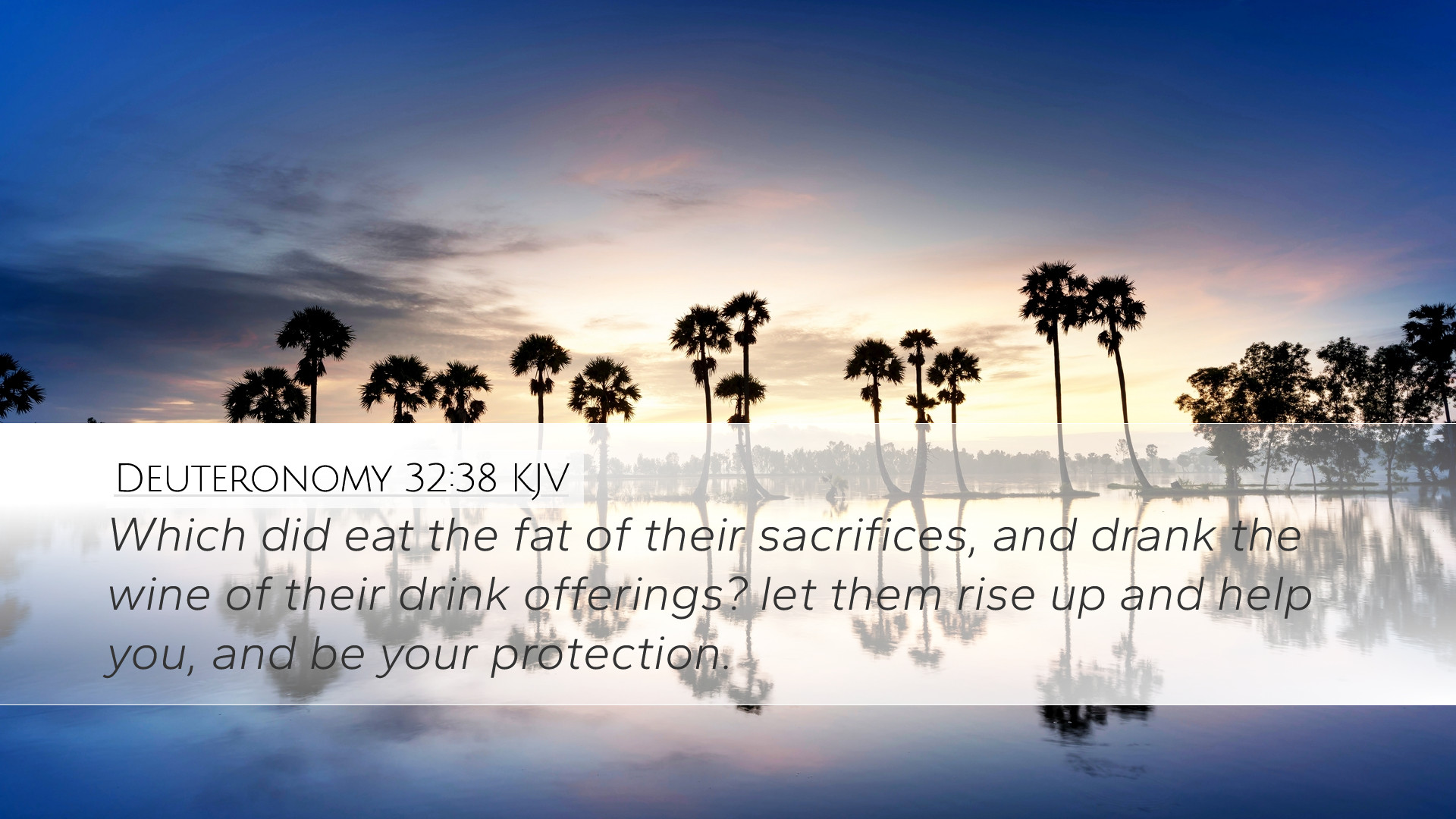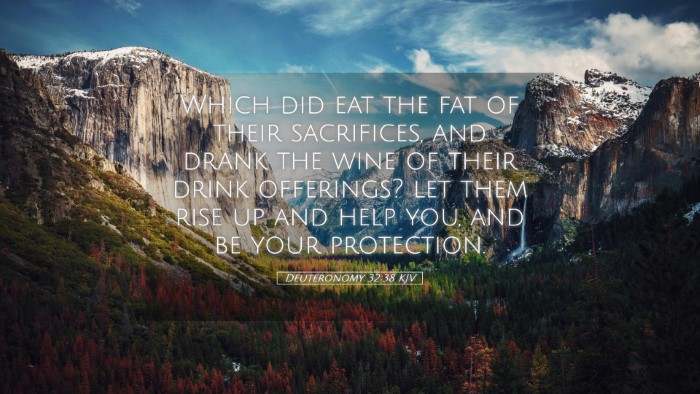Commentary on Deuteronomy 32:38
Verse Text: "Which did eat the fat of their sacrifices, and drank the wine of their drink offerings? Let them rise up and help you, and be your protection."
Overview
Deuteronomy 32:38 is situated within the context of Moses' song, which serves as both a prophetic declaration and a reminder of Israel's covenant relationship with God. This verse specifically reflects on the futility of seeking help from idols and emphasizes the distinctiveness of the God of Israel compared to the false gods worshiped by the nations.
Insights from Public Domain Commentaries
Matthew Henry's Commentary
Matthew Henry discusses the nature of idolatry and the inherent limitations of idol worship. He notes that the verse presents a rhetorical question: asking if these idols, which consume offerings but cannot provide help, are worthy of reliance. Henry emphasizes that the consumption of sacrifices — the fat and the wine — symbolizes the supposed power of these idols. However, he starkly contrasts this with the living God who truly does respond and save. Henry also highlights how the inability of these idols to protect or assist their followers serves to underline the sovereignty and efficacy of God.
Albert Barnes' Notes on the Bible
Albert Barnes elaborates on the rhetorical nature of the inquiry posed in the verse. He states that those who partake in idol worship seek assistance from entities that have no capability or power. His commentary underscores that the “fat of sacrifices” and “wine of drink offerings” represent elements of worship dedicated to these idol gods. Barnes interprets this as a stark admonition to Israel, reminding them that true help comes only from Yahweh, and that reliance on idols will lead to disappointment. Moreover, he posits a warning about the consequences of turning to false gods, indicating that such actions would ultimately lead to societal and spiritual destruction.
Adam Clarke's Commentary
Adam Clarke takes a more historical approach, noting the specific practices associated with idol worship at the time of Israel. Clarke observes that the particular offerings mentioned reflect the pagan customs prevalent among surrounding nations and cautions against the allure of such practices. His commentary suggests a deep theological reflection on the nature of sacrifice, asserting that true worship should be directed towards the Creator rather than created objects. Clarke concludes that this passage serves as an unambiguous warning as Israel stands at the crossroads of fidelity to God versus the seduction of idolatry.
Theological Implications
This verse invites us to reflect on the broader theological themes present in Deuteronomy 32, particularly the faithfulness of God contrasted with the void of falsehood in idol worship. Any reliance on created things for divine assistance is ultimately futile, suggesting several critical implications:
- The Nature of True Worship: Worship is only meaningful and effective when directed towards the true God who is alive and capable of delivering.
- Futility of Idolatry: The idols, which consume offerings, cannot reciprocate in any meaningful manner, illustrating the emptiness of such worship.
- Covenant Reminder: This passage serves to reaffirm the covenant between God and Israel, urging the people to remain steadfast in their relationship with their Creator.
- Warning Against Apostasy: The text acts as a cautionary tale about the dangers of straying from one's faith and seeking refuge in false practices.
Conclusion
Deuteronomy 32:38 serves as a powerful reminder of the futility of relying on false gods. The insights gleaned from commentaries by Matthew Henry, Albert Barnes, and Adam Clarke bolster our understanding of the spiritual, historical, and theological dimensions of this verse. For pastors, theologians, and students alike, this text reinforces the importance of rooting our faith in the living God, who alone is our protector and source of help.


